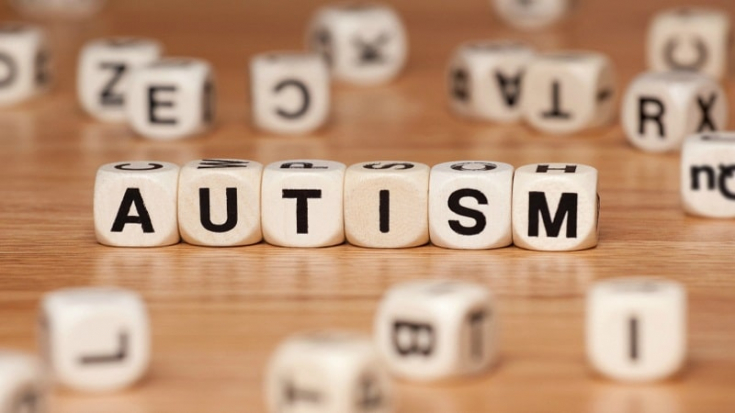Statistics say that about 1% of the population has autism.Adults with autism, in addition to being socially sensitive, need special psychological support to function normally. Early diagnosis improves development and quality of life, but what are the consequences of autism for an adult?
The editors of estet-portal.com will talk about the psychological and social problems an adult with autism faces.
- What you need to know about autism in adulthood
- Some facts about adults with autism
- Psychological and social support for adults with autism
What you need to know about autism in adulthood
When we talk about autism, we think about the problems and needs of young children. Most of the information materials written about autism are about children with a diagnosis. Research on Autism in Adulthood has been neglected for a long time. Fortunately, in recent years there has been considerable interest in this topic, more data, resources and knowledge.
Subscribe to our page on Instagram!

All of this leads to the great goal of giving a clear and expert answer to each individual according to their needs. However, there is a problem in clinical practice that some adults with high-functioning autism still do not know that they suffer from this condition. These are independent people with work responsibilities and life plans, who often feel that something is wrong with them. Problems in social interaction, hypersensitivity to stimuli and anxiety tend to severely limit their lives.
No two people have the same characteristics of autism, each case is unique in its own way. In addition to the unique characteristics of each individual, adult autism interferes with daily life.
Subscribe to our page on Facebook!
One aspect not to be overlooked – it is a disorder covering a wide range of characteristics and needs. There are known cases of people with Rett syndrome and with Asperger's syndrome. There may be adults with high-functioning autism who are highly addicted, have severe communication, social interaction and behavioral problems. In all these cases, psychological and social assistance, as well as the right to integration, are key points that should never be forgotten.
A few facts about adults with autism
Autism Spectrum Disorders – they are neuropsychiatric disorders with varying symptoms and levels of severity that occur early, persist throughout life, and involve various aspects of emotional, social, and intellectual development. Here are some facts about adults with autism:
- Autistic children grow into adults with autism
A child diagnosed with autism cannot get rid of it in adulthood. Autistic children may develop social and cognitive skills that make manifestations of the disorder less noticeable. But a child with autism will not fully overcome his disability and become a normal adult.

- As adults, autistic people are very different from each other
There are different cases: some people with autism can successfully work in the technological field (programming, manufacturing); others are employed part-time; the rest cannot work at the workplace and are in a safe place. Some adults are happily married, others have romantic friendships. Also, a significant number of people fail to form meaningful relationships with peers. The large difference makes it difficult to create a universal mechanism for interacting with autistic people and providing the necessary services for both children and adults.
- Some autistic adults are very successful
There are many successful people in society with a diagnosis of autism. They are an example and a trustworthy example for children and youth with autism who aspire to live full, independent lives.
- Adults with autism face significant life challenges
While some adults with high-functioning autism are quite successful, many of them are subjected to severe trials. Between 25% and 30% of adults with autism have been minimally talkative or non-verbal since childhood. Up to 56% of people with autism are also aggressive towards others.
Some are unable to be self-reliant, manage finances and time, clean the house, interact socially in the workplace at work and in the community, build relationships and make friends.
entails hyper- or hypoxia of sound, light, touch,
Consultation with Qualified Psychologists
If you have an adult relative with autism, or if you personally suspect that you fall into this group, the best solution is to contact a professional who has experience in this field.

Perform a full assessment of the strengths, cognitive, behavioral and emotional needs of the adult with autism
.-
Interviews with people closest to the person with autism.
- Medical examination to exclude the possibility of other abnormalities.
- Autism in adulthood and therapy
Psychological intervention in adults with autism will always depend on the specific needs of the patient. Examples of
are the following aspects:Working in communication and social skills.
- Adopting new habits in everyday life.
- Changing certain behaviors to promote inclusion, well-being, and social behavior.
- A functional routine that allows
adults with autism
to have a reasonable sense of security and autonomy. -
Promotion of integration into the world of work.
- Attention to aspects such as anxiety, mood disorders, or depression. This reality involves many emotional problems. In this situation,
cognitive behavioral therapy
will be most effective. -
Personal psychotherapy is also extremely helpful. A man or woman with autism must take care of their relationships on an emotional, family, and work level.
- It should not be forgotten that some people with autism have severe cognitive impairments. Behavioral problems may appear where psychological support is needed.
- Support for family and loved ones
Talking about autism as an adult also means taking family context into account. Fathers, mothers, partners, children…knowing how to act or just be aware of what an autism spectrum disorder is makes life easier for a person with autism.
From this point of view, psychologists are a help and daily support that can be turned to, to uncover fears, doubts, worries and stress. The personal reality of this heterogeneous group is complex and unusual, but there are strategies and experienced staff to help improve the quality of life.
Adults with autismcan have a normal full life with professional advice and therapy. Despite social difficulties that affect communication with others, people with autism can gain independence.
More useful information on our channel in Youtube
:





Add a comment